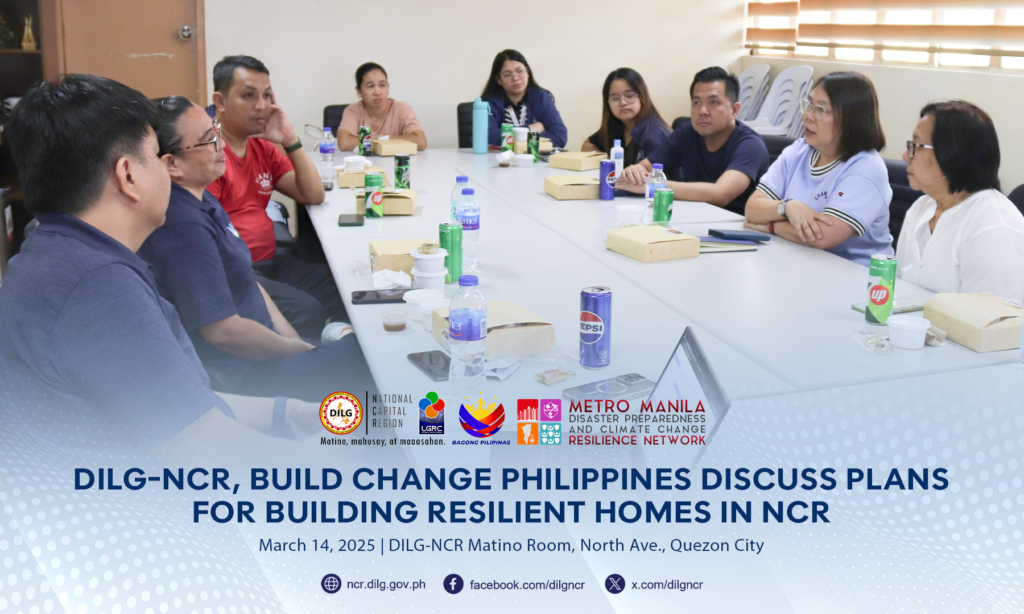
DILG-NCR Regional Director Maria Lourdes L. Agustin, CESO III, along with Local Government Capability Development Division (LGCDD) Acting Chief Luigi D.C. Pilarta, welcomed representatives from Build Change Philippines during their visit to the Regional Office on March 14, 2025, to discuss collaborative plans for building resilient homes in Metro Manila.
Present were Build Change Philippines Country Program Manager Girlie Lopez, Project Manager for Technical Services Engr. Roel Ombao, and Senior Builder Trainer Raquel Lagramada; Build Change Philippines Consultant and Earthquake and Megacities Initiative Secretary General Atty. Violeta Seva; and KCoop Program Manager Cyril Pableo.
To start off, Ms. Lopez presented the organization’s preventive home strengthening program, which utilizes a digital application that enables vulnerable communities to efficiently access technical assistance and financing for incremental improvements to their homes. Specifically, the tool can assess the structural integrity of houses and guide users on how they can effectively retrofit them to withstand disasters, including seismic events such as the “Big One.”
Prior to the meeting, LGCDD Project Evaluation Officer III Tracey Jayne L. Molina and Project Development and Management Unit Engineer III Mikee C. Miranda joined the organization for a field visit to a community in Batasan Hills, Quezon City, observing firsthand the assessment of houses through use of the said application.
To further understand the program, Engr. Ombao facilitated a quick walkthrough of the application, showcasing the data collection process, including the results of the assessments conducted.
RD Agustin also shared the Department’s existing efforts in building climate and disaster resilient communities, providing insights on how joint efforts can be made to strengthen vulnerable houses in NCR.
Looking ahead, DILG-NCR and Build Change Philippines commit to working together to implement innovative strategies designed not only to improve housing resilience in the Metro, but also to ensure public safety and well-being in the face of climate and disaster risks.
